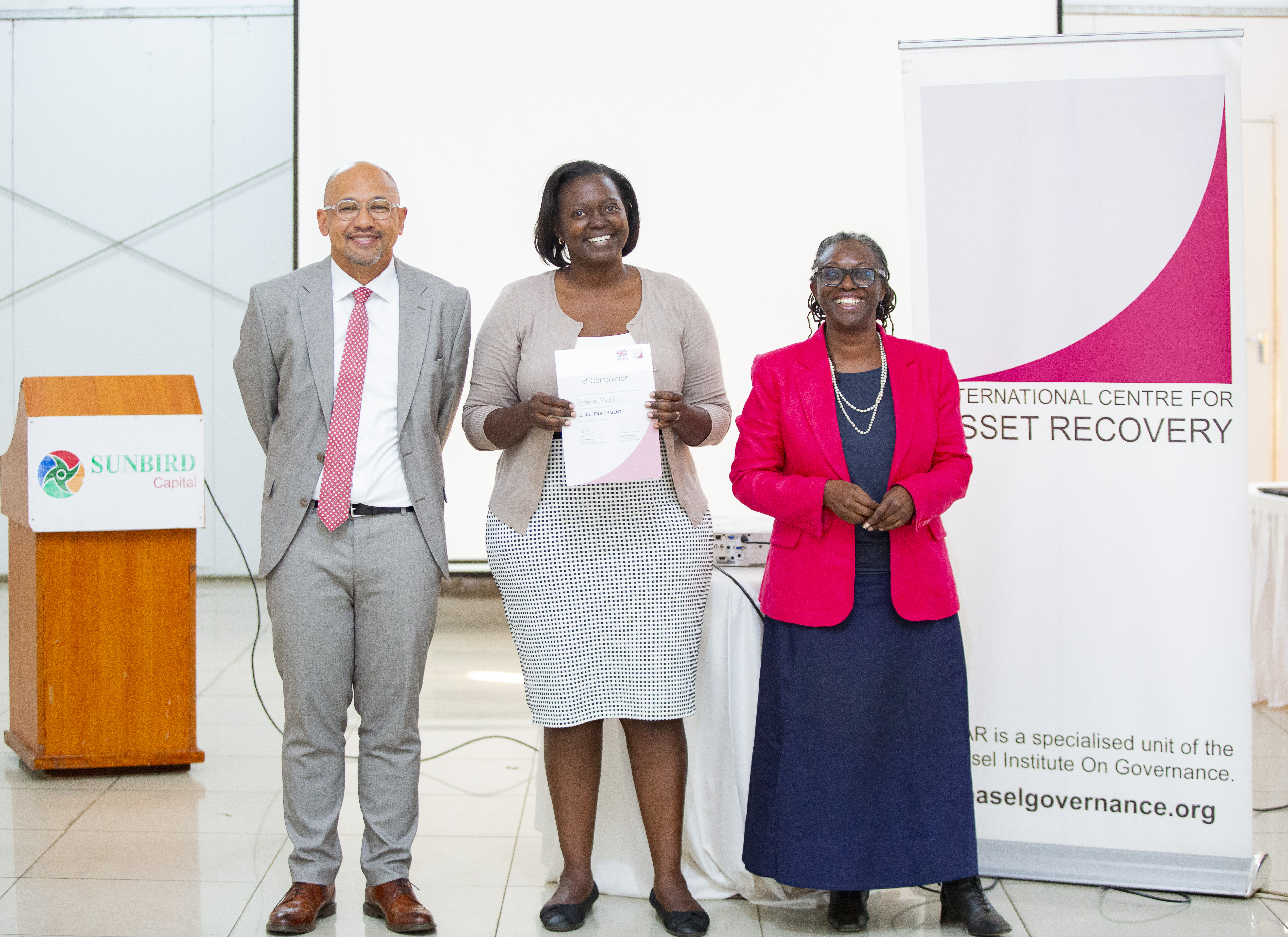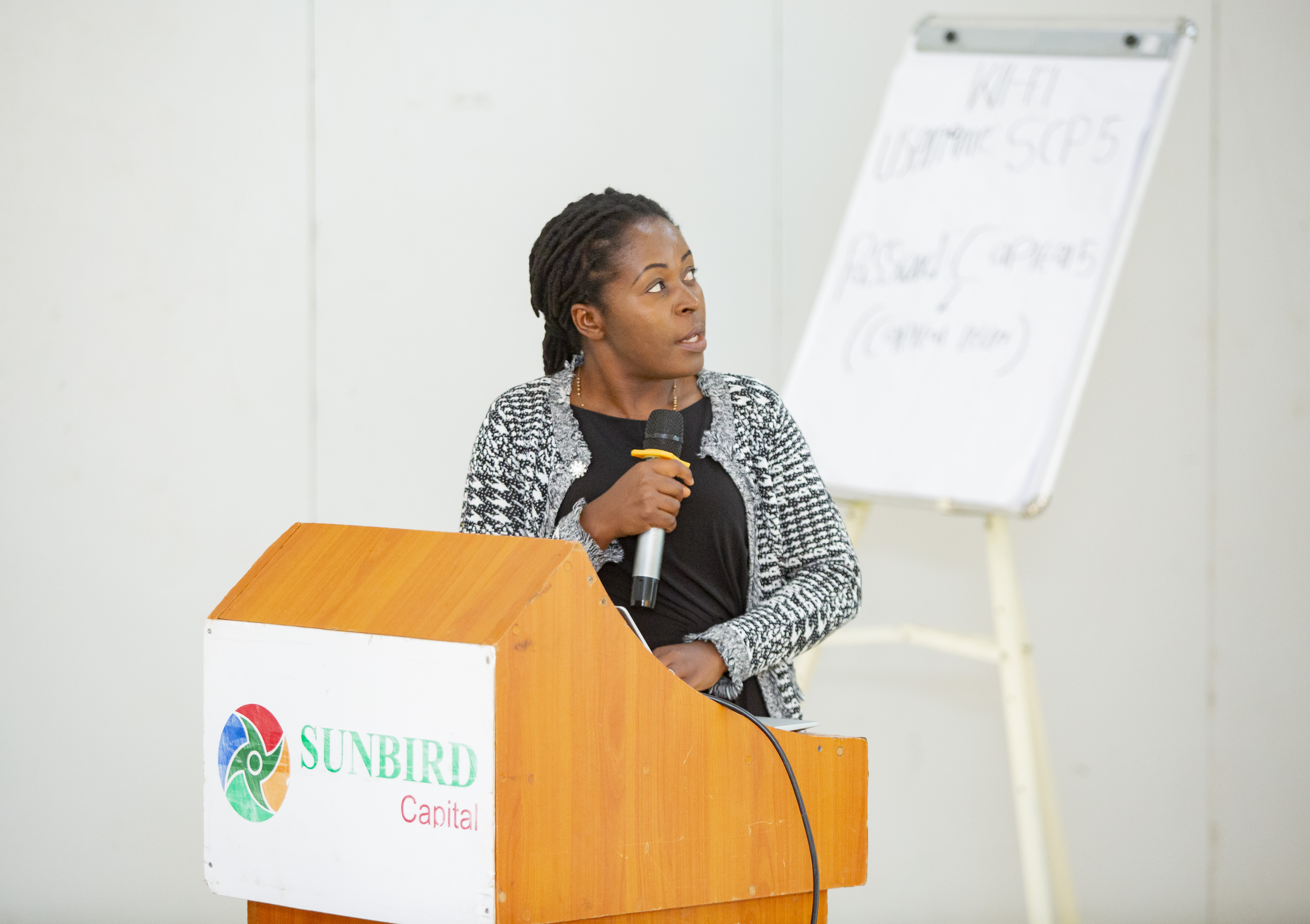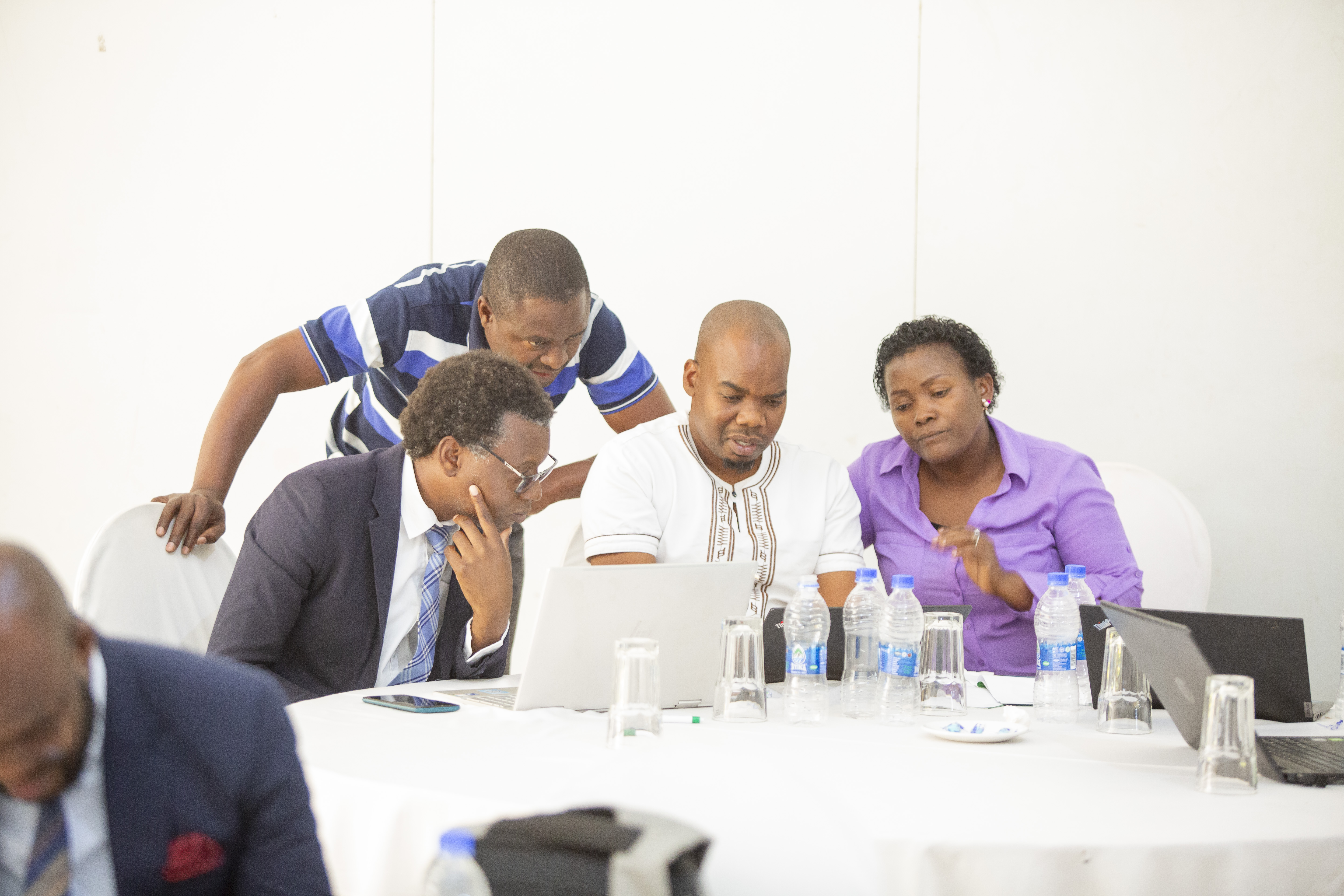New training on illicit enrichment rolled out in Malawi
Our International Centre for Asset Recovery (ICAR) has launched a new training programme on illicit enrichment.
Delivered for the first time in Malawi to 33 practitioners from a range of government agencies, the programme is designed to help practitioners gain the knowledge and skills to investigate and prosecute cases of unexplained wealth in line with local legislation and to recover any unjustified assets.
Our training team designed the new programme in response to the introduction of illicit enrichment legislation in various countries as a valuable tool in the fight against corruption. The programme builds on the Basel Institute’s extensive research on this topic – see our free book on Illicit Enrichment by Andrew Dornbierer – and on the hands-on experiences of our ICAR staff working with law enforcement practitioners around the world.
Illicit enrichment offences: great potential...
Illicit enrichment offences (also known as the possession of unexplained or unjustified wealth) typically target public officials who cannot reasonably justify the maintenance of a lifestyle or the possession of property which is incommensurate with their lawful income.
A major rationale for targeting unexplained wealth is that corruption offences such as bribery are often difficult to prove beyond reasonable doubt and/or to link directly to particular assets. Although laws vary widely between countries, illicit enrichment legislation has the benefit that it generally does not require proof of specific underlying criminal conduct to establish that the offence of illicit enrichment has been committed.
Instead, courts only need to be satisfied that a person is enjoying an amount of wealth that is not justified by reference to their legal income. As a result, it is a powerful enforcement tool. It also enables the recovery of assets arising from corruption.
… but underutilised
Thierry Ravalomanda, Head of Training ICAR, explains that:
“Despite its clear potential, the offence of illicit enrichment remains largely underutilised. Reasons for this include legal challenges, such as concerns about infringing upon the presumption of innocence and the right to a fair trial, and the difficulties of international cooperation, particularly when meeting dual criminality requirements. These complexities have made many jurisdictions hesitant to fully enforce this offence.”
For example, although Malawi criminalised illicit enrichment in 2004, and although the law has been tested in court and generated some jurisprudence, it remains underutilised. Thierry emphasises that:
“Continued training and strategic support will help to ensure that illicit enrichment legislation is utilised more effectively in Malawi and in other jurisdictions.”
The strategic support includes hands-on mentoring of Malawian officials by ICAR’s financial investigation and asset recovery specialists.
Trainings respond to enforcement challenges
The first edition of this new programme brought together practitioners from Malawi's Anti-Corruption Bureau, Financial Intelligence Authority, Malawi Revenue Authority, Police, Judiciary, Office of the Director of Public Prosecutions and Office of the Director of Public Officers’ Declarations.
Participants worked together in cross-agency task teams to enhance their knowledge of the illicit enrichment offence as it appears in Malawi’s anti-bribery legislation. They also improved their technical skills in conducting source and application of funds analysis and net worth analysis as alternative ways to calculate unjustified income – skills that they and others can practise in our free eLearning course.
Participants gave positive feedback, with one stating that:
“The training has exceeded my expectations and enhanced my analytical and investigation skills. Going forward, I believe I will produce fact-based reports that will help when dealing with unexplained wealth/illicit enrichment investigations.
The value of peer learning was also raised, with the hope that:
“future training involve participants from several countries so that we can learn and exchange experiences from different jurisdictions.”
The training was funded by the UK Foreign, Commonwealth and Development Office as part of our long-running programme of technical assistance to Malawi on anti-corruption and asset recovery.



